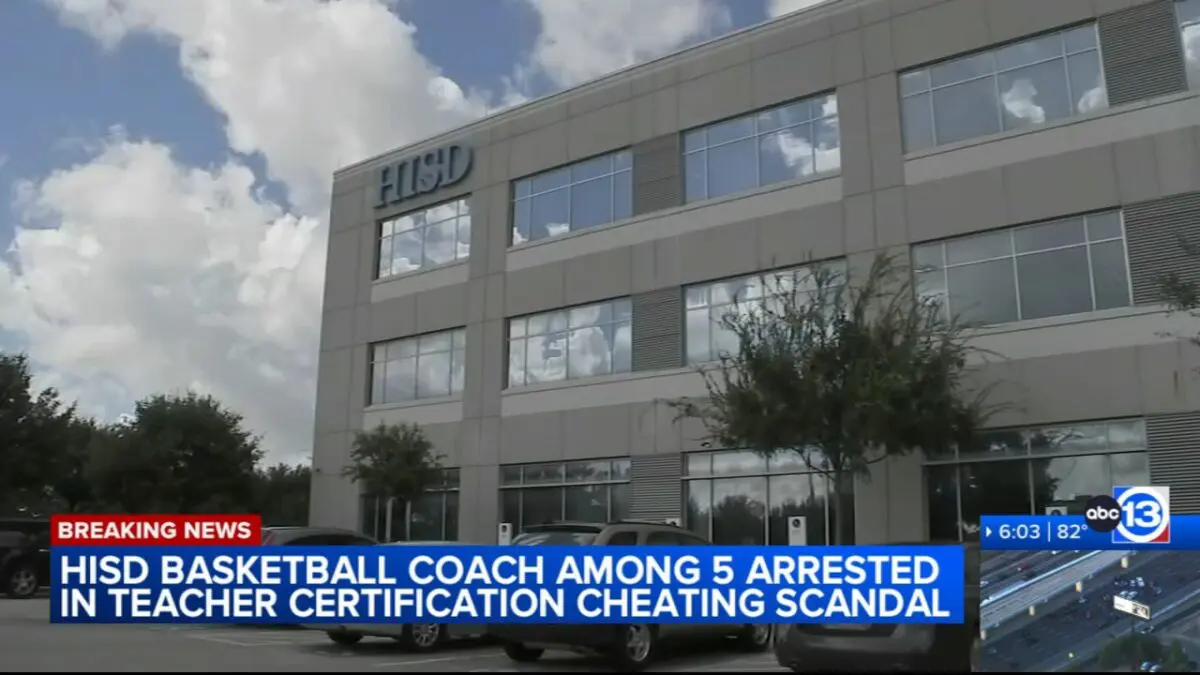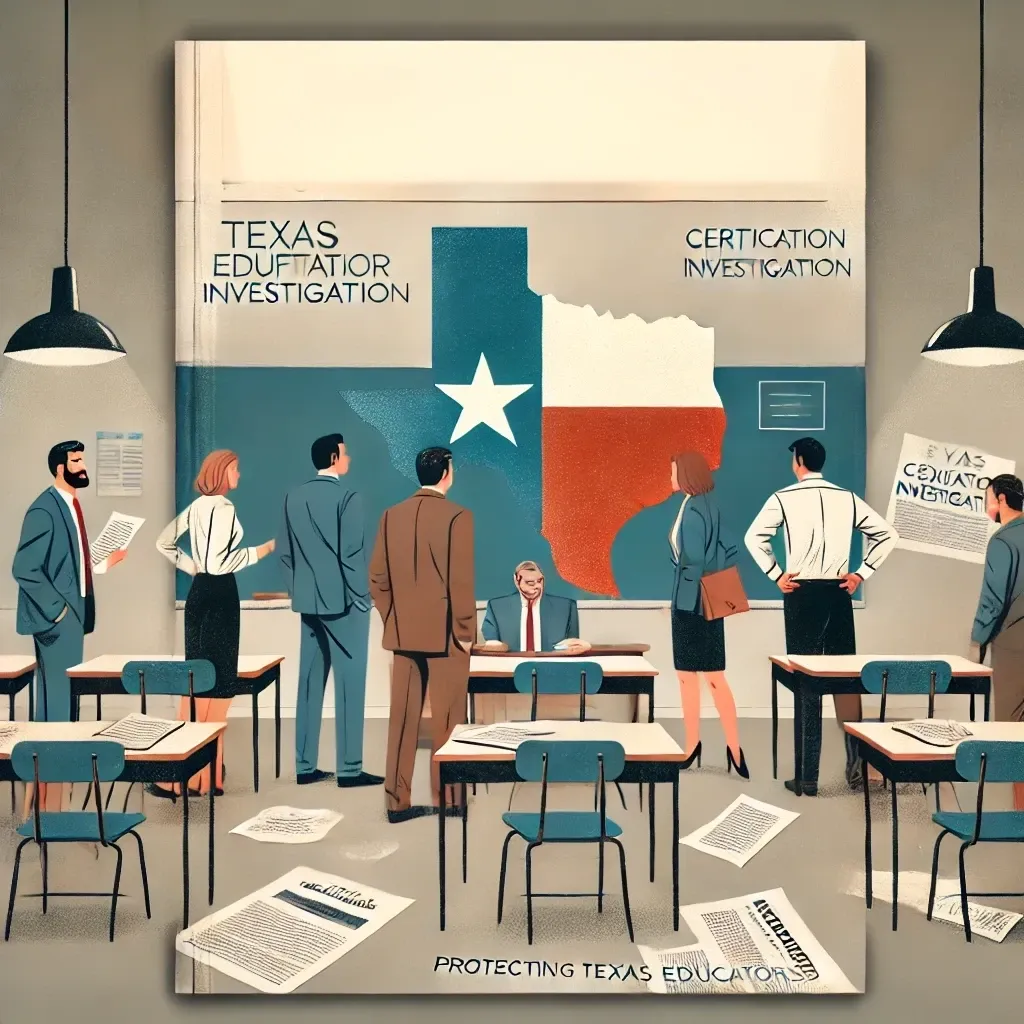The education landscape in Texas is currently rocked by a troubling trend: a growing cheating scandal involving teachers. Recently, the Texas Education Agency (TEA) has unveiled names of 60 additional educators under investigation in the Houston area for alleged fraudulent certification practices. This follows a previous identification of over 100 educators, raising serious questions about ethical standards in education.
The revelation has sent shockwaves, with stakeholders, parents, and the community grappling with concerns over educator credibility. These events spotlight the urgent need for stringent checks in the education system. It’s alarming to think that individuals responsible for shaping young minds might be engaging in unethical practices for personal gain.
This scandal is not just a local issue; it reverberates throughout the state, inviting scrutiny and intense public interest. It compels us to dive deeper into how such circumstances emerged and what they entail for future generations. Let’s unravel the details surrounding this unfolding crisis and its implications on Texas education.
Understanding the Certification Cheating Scheme
The cheating scandal traces back to an extensive scheme, where educators allegedly obtained fake teaching certifications through dubious means. This practice has drawn attention from various authorities, especially the TEA, which is now broadening its investigation to encompass not just the Houston area but potentially the entire state.
The complex web of deceit suggests significant collusion, and reports point toward a notable educational hub in Houston as the scheme’s core. The gravity of these allegations necessitates a thorough exploration of how it all came to be, who benefited, and what systemic changes should follow.

How the Scheme Was Uncovered
The investigation began with anonymous tips and reports from diligent colleagues within the educational community. Such revelations forced the TEA into action, leading to an extensive review of certification records that unveiled shocking discrepancies.
At the heart of this scandal lies a stark failure in oversight and monitoring procedures currently in place to prevent such exploitation. It’s essential to shine a light on how the system’s loopholes allowed these unethical behaviors to persist and thrive.
Consequences for Involved Educators
The ramifications for those found involved in this cheating scandal could be severe. Beyond potential criminal charges, educators risk losing their licenses and facing professional disgrace that could follow them for years.
This situation raises pressing questions: what accountability measures are in place for educators? How has this scandal compromised the integrity of teaching in Texas?
Educators hold immense power influencing future generations, and their betrayal of that trust is both disappointing and damaging. The community’s response will undoubtedly shape how these situations are handled in the future.

The Bigger Picture: Educational Integrity
Beyond the individual consequences faced by those involved, this scandal begs a broader examination of integrity within the educational system. Educational institutions must foster environments where honesty and ethical practices reign supreme.
With the increasing focus on standardization, assessments, and results, the pressure on educators can lead them to make desperate choices. Addressing these systemic issues is crucial in preventing such scandals from recurring.
Recommendations for Improved Oversight
The time for reform is now. A multi-faceted approach incorporating enhanced oversight, frequent audits, and rigorous checks is necessary. Educators need to be held accountable, with support systems in place to discourage unethical behavior proactively.
Steps could include improved reporting mechanisms for suspected cheating and mandatory training for all educators on maintaining certification integrity. The ultimate goal should be to nurture a culture of respect and responsibility within classrooms across Texas.
Without decisive action, the cycle of malpractice will likely perpetuate, raising deep concerns about who is entrusted with teaching the youth.
The Community’s Role in Promoting Integrity
In the face of such disheartening news, it’s vital for the community to actively engage in discussions surrounding educational integrity. Parents and citizens must advocate for transparency in local schools and remain vigilant against any signs of impropriety.
Open dialogues will foster trust and accountability, and communities can work together to support educators who uphold ethical standards. It’s essential to distinguish between those individuals who may have compromised their integrity and the many educators who work tirelessly for their students.

Building a Positive Future
Working collectively, we can shape the future of education in Texas. Transparency, accountability, and active participation are pivotal in eradicating unethical practices and restoring confidence in the educational system. By investing in the integrity of our educators, we simultaneously invest in the futures of our children.
The ongoing investigation will serve as a pivotal moment for the educational community, catalyzing change that could ultimately lead to better practices, training, and a re-envisioning of how we approach teacher certifications.
Final Thoughts on Educational Integrity
The recent developments linked to the ongoing cheating scandal in Texas should serve as a wake-up call. Such events can impact not just the educators involved but the very fabric of trust and reliability placed in our education system.
As investigations proceed and more information comes to light, it remains imperative that all stakeholders work together to ensure that educators are held to the highest standards of professionalism. The time to demand integrity in education is now.
Source: www.khou.com
Hi, I’m Sarah, a 30-year-old journalist with a passion for storytelling and uncovering the truth. I strive to bring important issues to light and connect with my audience through compelling narratives.



